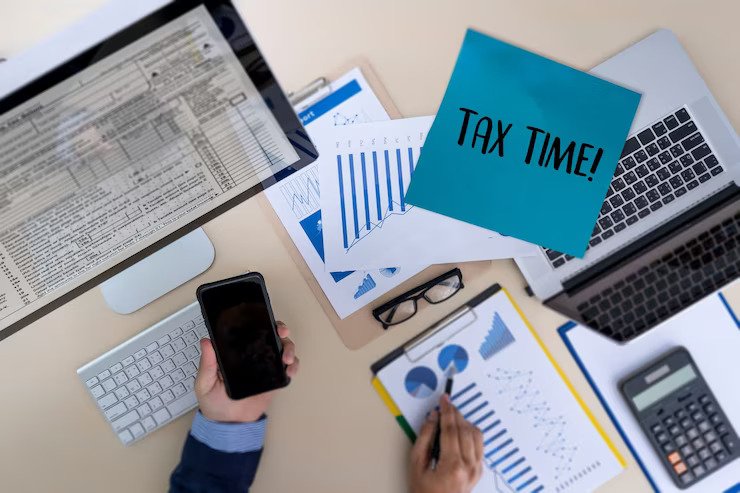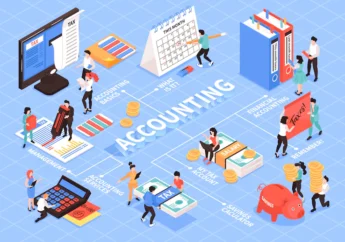5 Tax Planning Strategies For Freelancers
by Arnab Dey Finance Published on: 28 June 2023 Last Updated on: 18 December 2023

Navigating the complex world of taxation as a freelancer can seem like a daunting task, but with astute planning and a sound understanding of tax laws, you can effectively manage your tax obligations.
Recent statistics offer a compelling reason to understand these tax strategies. A study conducted by Fiverr revealed a significant shift in the American workforce, with 71% of workers planning to enter the realm of freelancing in 2023. Freelancing as a career or side hustle is increasingly attractive, especially when you consider that 31% of freelancers are earning an impressive annual income of $75,000.
With these numbers in mind, it’s clear why effective tax planning is paramount for freelancers to maximize their earnings and minimize their tax liabilities.
Here Are Five Tax Planning Ideas For Freelancers
The following are five key tax planning strategies to help freelancers navigate the taxation landscape.
1. Hiring a Personal Tax Accountant

The first step in ensuring sound tax planning is hiring a personal tax accountant. This person serves as your guide in the complex world of taxes. They not only help you understand tax laws that apply specifically to freelancers but also assist in optimizing your tax savings.
Engaging a personal tax accountant comes with numerous benefits. It frees up your time to focus on what you do best—your freelance work. It ensures that you do not overlook critical deductions and credits. Moreover, it brings peace of mind, knowing that you are in compliance with the tax laws, thus avoiding possible penalties and audits.
In choosing a personal tax accountant, locality matters. Local tax accountants possess a deep understanding of the local and state tax laws, which may vary significantly from one region to another. For example, if you live in New York, make sure you find the best personal tax accountant NYC has to offer, as they will be well-versed in the intricacies of local taxes that are unique to the city and state. Keep in mind that an out-of-state accountant might lack this crucial local knowledge.
In addition, look for someone with expertise in freelance tax matters, impeccable reputation, and excellent communication skills. Take time to check their qualifications and ask for recommendations from fellow freelancers, if possible.
2. Utilizing Tax Deductions and Credits
Tax deductions and credits are powerful tools to reduce your taxable income and taxes owed, respectively. As a freelancer, there are numerous expenses that you can deduct from your income. These include home office expenses, equipment, supplies, business travel expenses, and even a portion of your internet bills.
The key to maximizing these deductions and credits is meticulous record-keeping. Every receipt, bill, and proof of expense related to your freelance work should be stored and organized. These records not only validate your deductions in case of an audit but also help you and your tax accountant in determining all the potential deductions you may claim.
3. Paying Estimated Taxes

Contrary to regular employees, freelancers aren’t subject to tax deductions directly from their earnings. As a result, the Internal Revenue Service (IRS) requires freelancers to pay estimated taxes quarterly. These payments are a projection of your income, self-employment tax, and possible deductions for the year.
Paying estimated taxes promptly can save you from hefty penalties. Your tax accountant can help you calculate these estimates accurately. Although it may feel like an additional burden, it helps spread your tax obligations throughout the year, rather than having a large bill at the end of the tax year.
4. Setting Up a Retirement Account
Investing in a retirement account is not only a smart financial decision for your future; it can also provide significant tax benefits now. As a freelancer, you can set up a Simplified Employee Pension (SEP) IRA or a solo 401(k), both of which allow for higher contribution limits than traditional IRAs.
Contributions to these accounts reduce your taxable income for the year, offering immediate tax savings. Plus, the investments grow tax-free until you start making withdrawals during retirement. Regular contributions can result in substantial savings over time.
5. Legally Structuring Your Business for Tax Purposes

.
How you structure your business legally can have significant implications on your taxes. As a freelancer, you may operate as a sole proprietor, Limited Liability Company (LLC), or even an S Corporation, each having its own set of tax advantages and liabilities.
While a sole proprietorship is the simplest structure, forming an LLC or electing to be taxed as an S Corporation might provide more tax-saving opportunities in some cases. In certain cases, you might even choose to relocate some of the business operations to a tax-free country to help alleviate some of the expenses, and you can read this Nomad Capitalist Review to see how one consulting group effectively helps businesses do this. Ultimately, seeking advice from a tax expert can guide you in identifying the most tax-advantageous setup for your enterprise, and is one of the best things to do.
Final Thoughts
As a freelancer, effective tax planning can make all the difference. Employ the strategies we’ve discussed—personal tax accountant hiring, tax deduction utilization, timely estimated tax payment, retirement account set up, and choosing an appropriate business structure—to navigate tax season with ease and efficiency. The sooner you start planning, the more prepared you’ll be when tax season rolls around.
Read Also:







































































































